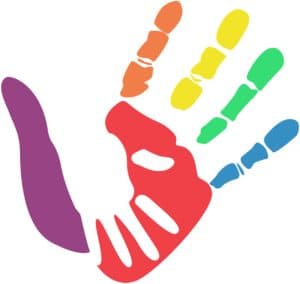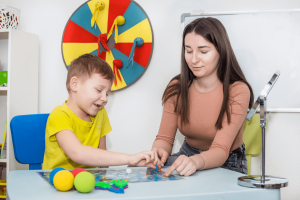Behavior therapy is the practice of learning to change one’s mannerisms. It’s a form of psychotherapy that focuses on the relationship between thoughts, feelings, and behaviors.
Behavior therapy is often used as an adjunct to other forms of psychotherapy, such as cognitive-behavioral therapy (CBT) and interpersonal therapy (IPT). In this way, behavior therapists can help patients identify their thought patterns and learn how to change them to change their mannerisms.
Behavior therapists also work with patients diagnosed with anxiety disorders or mood disorders like depression or bipolar disorder. These therapists can help people manage their symptoms through cognitive restructuring and changing the way they react to things that trigger those symptoms.
That said, let’s discuss the origins and evolution of behavior therapies in the next section.
The Origins and Evolution of Behavior Therapies
Behavior therapy is a form of psychotherapy that utilizes principles of learning theory to treat mental disorders. It focuses on changing maladaptive behaviors rather than addressing the root cause of the problem.
Behavior therapy is based on the idea that behavior is learned, and thus it can be unlearned or modified. Behavior therapists also believe that people can learn to control their reactions to thoughts and events.
The field was developed in the 1930s by John B. Watson and his colleagues at Johns Hopkins University, who focused on behaviorism—the idea that environmental influences can explain human behavior.
One of the most important behaviorists, B.F. Skinner wrote “The Behavior of Organisms” in 1938. Skinner believed that all behavior could be explained by operant conditioning—the process by which behaviors are strengthened or weakened based on external rewards or punishments.
Behavior therapy was used as early as 1940 as an experimental treatment for schizophrenia. Still, it wasn’t until 1960 that a group led by psychologist Aaron Beck began treating patients with depression using cognitive behavioral therapy (CBT). CBT has become one of the most widely used forms of psychotherapy.
Behavior Therapy was created to be applied to mental health treatment for many patients suffering from mental health issues. Let’s discuss these applications below.
Behavior Therapy’s Many Applications to Mental Health Treatment
Behavior therapy has been proven effective at treating depression, anxiety disorders, obsessive-compulsive disorder (OCD), post-traumatic stress disorder (PTSD), and many other mental health issues. Here are five types of behavior therapy that can help you:
- Treat Mental Health Disorders
Behavior therapy is a form of psychotherapy that treats mental health disorders by changing the way you think, feel, and behave. It can help you overcome symptoms such as depression, anxiety, and post-traumatic stress disorder (PTSD).
- Address Substance Abuse Issues
Behavior therapy can address substance abuse issues such as alcohol dependence, prescription drug misuse, marijuana abuse, and other forms of drug addiction. It involves counseling that aims to reduce or eliminate harmful substance use by teaching patients how to cope without drugs or alcohol.
- Manages Attention Deficit Hyperactivity Disorder (ADHD)
Behavior therapy manages conditions like ADHD. If you have ADHD, your brain may not process information as it should, making it hard for you to concentrate on certain activities at school or work. Behavior therapy aims to help you find ways of coping with these challenges, so they don’t get in the way of achieving success in your life.
- Help Manage Anger Management Issues
Behavior therapy is used to help people who have anger management issues. It is especially helpful if you are dealing with an intermittent explosive disorder characterized by sudden and uncontrollable outbursts of anger.
- Alternative treatment Method
Many people who suffer from mental health problems have already tried other therapies, such as cognitive behavioral therapy or psychotherapy. Still, they have not found those approaches helpful enough to manage their symptoms effectively.
In these cases, behavior therapy is a good choice because it is less intensive than other types of therapy and, thus, easier for people to complete on their own. Now, let’s discuss the effective behavior therapy techniques discussed below.
Effective Behavior Therapy Techniques
Behavior Therapists use various techniques in their sessions with clients. Some of these techniques include:
- Cognitive Behavioral Therapy
Cognitive behavioral therapy is a treatment form that helps people understand the connection between their thoughts, feelings, and behaviors. It’s based on the idea that our feelings are not random. They have meaning and arise from our thoughts about the world around us.
When we change our thoughts about the world, we can change our feelings and behaviors in response to those thoughts.
- Modeling
Modeling is a behavior therapy technique that involves getting a person to observe another person demonstrating the desired behavior (e.g., cleaning up after themselves). The observer then tries to imitate this behavior to learn how to do it themselves.
This technique is used with children or adults with developmental disabilities who do not understand how certain behaviors aren’t carried out.
- Classroom Management
Classroom management consists of practices that create an environment where students can learn. It includes various positive reinforcement and behavior modification techniques, such as a token economy system. Besides creating an effective classroom environment, classroom management helps teachers control their classrooms and keep students focused on their lessons.
- Parent Training
Parent training is one of the most important aspects of behavior therapy because it allows parents to become involved in their child’s treatment program. Parent training gives parents the skills to help their children manage their emotions, handle peer conflicts, and overcome challenging situations at home and school.
- Peer Intervention
Teachers or therapists can use peer intervention to help students learn how to handle conflict with their peers appropriately. Peer intervention teaches children to participate in group discussions and resolve conflicts without resorting to violence or aggression.
Wrapping Up!
If you’re looking for an effective way to help your child learn to respond appropriately, The Play Base can be a great option.
The Play Base therapies help you understand the challenges your child faces and give you the ability to develop strategies for helping them overcome those challenges. It also helps you identify the types of play that are most successful and which areas need more attention.
The Play Base is not just about getting your child to play: it’s about giving them a safe environment where they can practice new skills and build confidence in their abilities.










